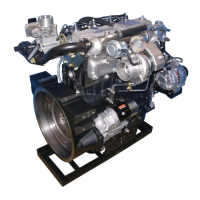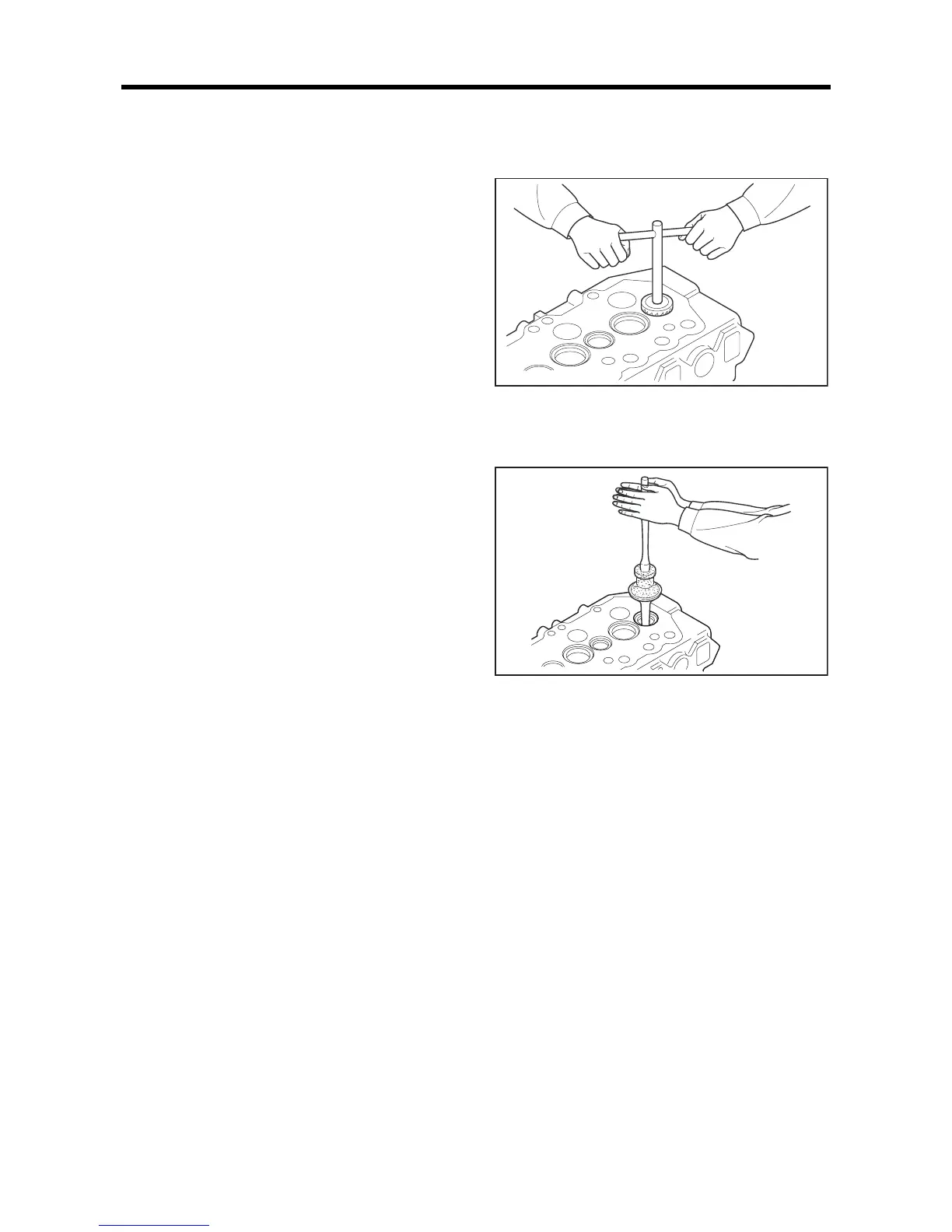INSPECTION AND REPAIR OF BASIC ENGINE
6-7
1.10 Refacing valve seat
(1)
Use the valve seat cutter or valve seat grinder to reface
the valve seat. After refacing, sand the valve seat lightly
using 400 grit sandpaper, inserting it between the cutter
and valve seat.
(2) Lap the valve in the valve seat.
Note: (a) Valve seat refacing should be kept to an absolute
minimum.
(b) If the valve seat width exceeds the limit due to
wear or refacing, replace the valve seat with a
new one.
(c) If the valve sinkage exceeds the limit after
refacing, replace the valve seat with a new one.
Refacing valve seat
1.11 Lapping valve and valve seat
Always lap the valve against the valve seat after refacing the
valve seat or after replacing the valve.
(1) Apply a thin coat of lapping compound evenly to the
valve face.
Note: (a) Do not allow the compound to adhere on the
valve stem.
(b) Compound spreads more evenly if it is mixed
with a small amount of engine oil.
(c) Use medium-grain compound (120 to 150 mesh)
for initial lapping, then use fine-grain compound
(200 mesh or finer) for finishing.
(2) Use a valve lapper for lapping. Strike the valve against
the valve seat while rotating the valve little by little.
(3) Wash off the compound using diesel fuel.
(4) Coat the contact surface of the valve with engine oil,
then lap the valve again.
(5) Check valve-to-seat contact.
Lapping valve and valve seat

